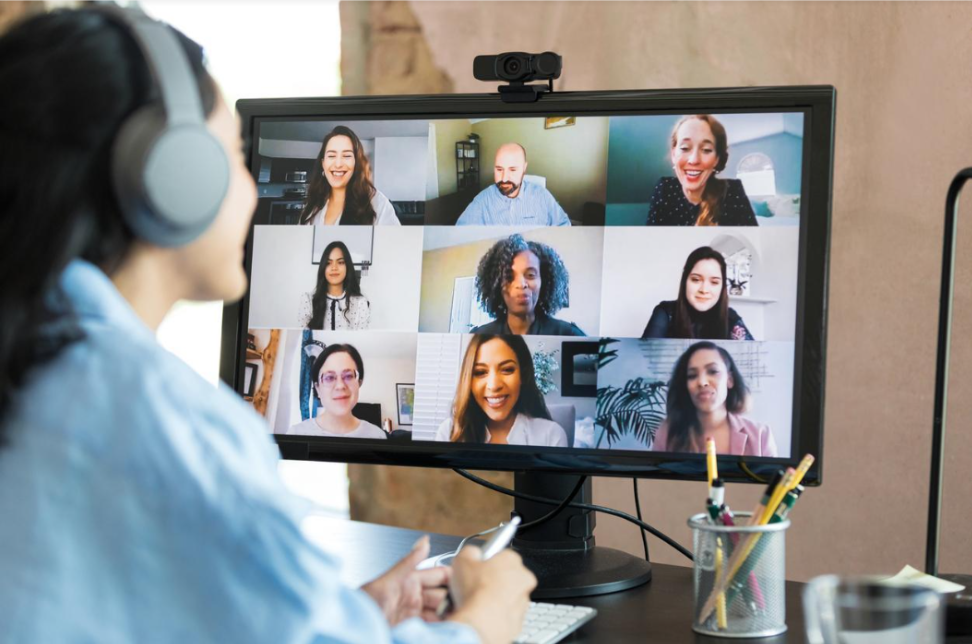
Accessible and convenient, online learning has become the method of choice for people hoping to advance their career or move onto a new one. Courses tend to be cheaper than in-person courses offered by universities and the learning can be done at a pace which suits the individual. Moreover, as there is no need to travel or schedule set hours, remote courses can fit around a student’s lifestyle.
Table of Contents
- 1 Mobile learning makes courses more accessible
- 2 Online certificates can perfect a resume
- 3 Study with home comforts
- 4 Online courses can be personalized
- 5 Learning becomes more social
- 6 Microlearning makes education less overwhelming
- 7 Online video learning adds variety to source materials
- 8 Technical competency is part of the online experience
- 9 Effective career advancement for busy people
Mobile learning makes courses more accessible
Most of us always have a smartphone with us and use it regularly to connect to Frontier internet plans. That is why the trend towards mLearning, or mobile learning, is becoming popular with educational platforms. With their smartphones, people can visit their provider, log in and view course materials from any location. They do not have to be at a desk or even at home.
Online certificates can perfect a resume
Whatever a person’s career progression, an online program can provide a valuable certification with upskills that look good on their resume. Recruitment managers are less concerned with where a qualification came from, and more interested in what knowledge it imparted and what the student could offer their company.
Study with home comforts
Training for a new career while holding down a job is a challenge. Online learning takes away some of the stress, however, as students can study from home, in their pajamas, without leaving the couch if that is what suits them. There is no commute time and if something comes up, be it work or family life, then study can be put on hold for the day. In this way, an online degree can allow a person to fit qualifying around their existing schedule. With less to contend with, it is easier to maintain wellness and minimize stress.
Online courses can be personalized
We all learn differently, and that uniqueness is reflected in the way online courses are delivered. Remote learning can be carried out at a pace which suits the individual. This allows people to gain skills and increase their knowledge in a way that makes them feel comfortable, rather than pushed to keep up with others. Moreover, technology can be used to map out objectives, suggest materials and create formats which fit the needs of everyone on the course, instead of relying on a ‘one size fits all’ solution.
People moving into careers such as nursing where interpersonal skills are useful will benefit from the social aspect of eLearning. At Baylor University, the online BSN programs blend interactive online teaching with lab and clinical work where students meet their classmates in person. This one-year program capitalizes on the strengths of group learning and collaboration, giving graduates every chance to gain the medical knowledge they need. Courses with discussion groups, videoconferencing, and calling features are great for online learning, as they are the latest way of nurturing a more social experience.
Microlearning makes education less overwhelming
People who have spent time away from education and are returning to kick-start a fresh career, may feel intimidated by the learning process. The course materials can stretch to tens of pages and that is without the accompanying classes and research required. To break this into more manageable pieces, the concept of microlearning is being explored. It is a relatively new buzzword, but in the world of online learning the idea has been around for a while. It simply means dipping into a course and reading an article for a few minutes, then taking a mini-quiz or watching a brief video. It will not take hours and is a manageable solution for people who are still working on their concentration skills.
Online video learning adds variety to source materials
Many of us enjoy watching video-based content on YouTube and other social media channels, so it makes sense to include this accessible resource in course schedules. As well as being convenient and readily available, it offers learners the chance to re-watch portions of a lecture or presentation until they understand the topic thoroughly. Furthermore, recent innovations in software have made it possible to add interactive elements to a video. These might include built-in links for additional reading, pop-up explanations, and quizzes to keep learners focused.
Technical competency is part of the online experience
In the 21st century, almost every area of work involves IT of some kind. From hospitals to factories and courthouses, technology is being integrated into daily tasks and procedures. People who are training online will learn to feel comfortable around new software while they study. As such, they are more likely to feel comfortable around computer-aided practices when they start work.
Effective career advancement for busy people
With effective software, accessible platforms, and more reasonable costs, online learning can benefit anyone who hopes to change careers. Regardless of a person’s age, their current qualification or their ability, trends such as microlearning and the personalization of content make eLearning an effective solution for ambitious students. With numerous courses to choose from and swift enrolment, anyone can find a route into the career of their dreams with a few clicks.

